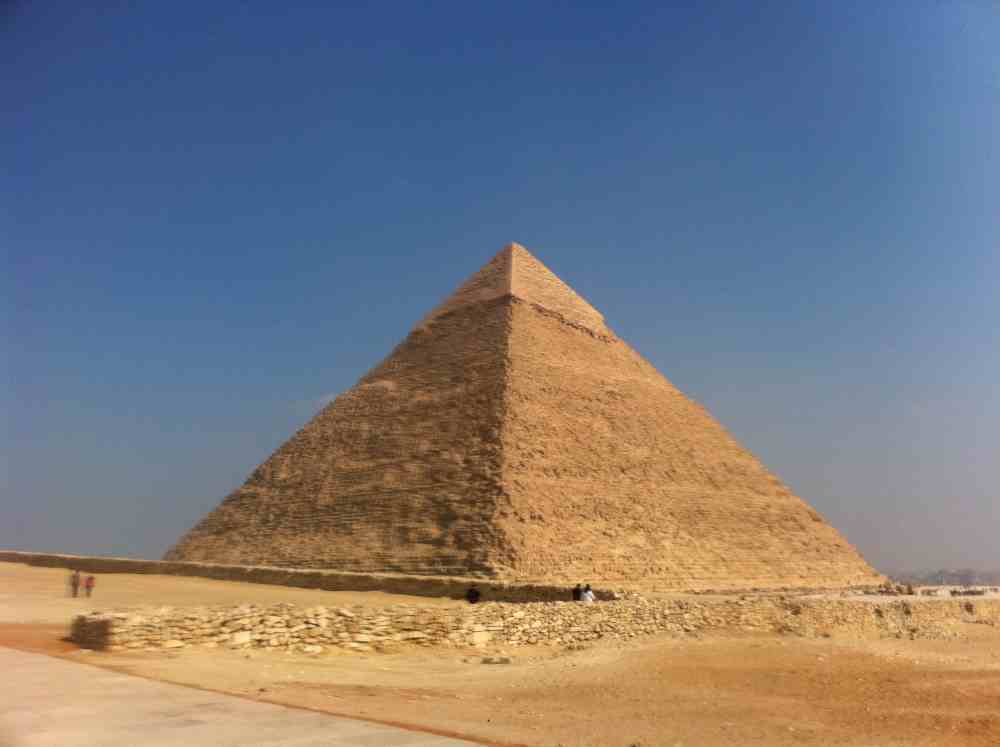(The above photo is one I took at the Pyramids during our 2010 visit. There is no describing the power of the pyramids–the sight brought me to tears).
The only disappointment on my first day in San Francisco was that we didn’t cross the Golden Gate Bridge. Never having been very good at geography, I somehow thought that all roads leading to the beautiful city by the bay passed through that bridge. Nevertheless, watching San Francisco grow closer as we drove across the Bay Bridge was a remarkable sight. For me, it looked like the Emerald City.
While doing theater in Montana, I had grown close to a group of friends who had all moved to San Francisco. My theater pals and I had so much fun together that when they said they wanted to move to San Francisco, I jumped at the chance. California was in my sights as a young wannabe actor. No, it wasn’t Hollywood but it was California—just a hop away from the glitter of southern California. I’d never move to Los Angeles, though—my love affair with San Francisco was too intense. Besides, I’d always romanticized about San Francisco and Haight Ashbury and the original bands that came out of the city were some of my favorite. I was too young in the 60s but there was still some of that leftover “Age of Aquarius’ 1960’s pixie dust when I moved there in 1977.
It was magical place. As soon as I stepped into the bright San Francisco sunshine (in February!), I fell in love. Looking around me were people of every race and ethnicity. Girls could be boys and boys could be girls—the city welcomed everyone, accepted us all, and we all felt its love. For someone who had felt different all her life, at once I felt at home. I saw why my friends wanted to move here: almost all of those I moved with were gay, not something you advertise in Montana, even in a university town.
I had gravitated to this group in Montana because they had also known discrimination and even hatred for who they were—how they were born. I felt a kinship with them. They also understood how different I was in the eyes of many Montanans. They saw that when no one else could—because they were different from the status quo as well. They wanted to go to San Francisco to escape its petty and conservative hatred of anything or anyone different from the norm—and I was desperate for that same escape.
For me, San Francisco was a magic city on the hill. Each day was like opening a shiny new gift as my friends and I explored the city. We first lived on Larkin Street—close to the ‘poor gay area of Polk Street,’ whereas the Castro was where wealthier gay men liked to hang out. I enjoyed both areas as they each offered a unique pocket of San Francisco. In fact, almost every neighborhood was its own small village within the wholeness of San Francisco: villages that had heart and soul.
I fell in love with San Francisco as one does a person, as I mentioned in one of my posts, The Tragedy of San Francisco, because of its acceptance of not just me but of everyone. In those days, I knew few native San Franciscans; almost all of us were people who had struggled to fit in elsewhere, each in our own way. We were all unique but we all shared so many similarities.
Along with the beauty of acceptance in San Francisco, I also began accepting myself. At a bar one night (drinking underage, as the California drinking age was 21, whereas it had been 18 in Montana), someone asked me what heritage I was—a constant question in my life because no one could figure it out. For the first time, I felt comfortable enough in my own skin to answer truthfully to a person who wasn’t a friend. With some trepidation, I replied, “I’m half Egyptian, a quarter French, and a quarter Dutch.” He looked at me with admiration and exclaimed, “Cool! I love Egypt. I was there once…” Then he wanted to know all about my adventure that had brought me from my original homeland to the U.S.
The reaction was such the opposite that I grew up but one thing was the same. No matter where I was—whether people accepted or hated me, they focused on the Egyptian part of my heritage as though the Dutch and French sides didn’t exist. I had always been proud to be Dutch and French I now realize that people focused on Egypt because it was so distant: people weren’t as interested in what seemed to them to be more mundane compared to such an exotic place as Egypt. I understand that now and it amuses me. People still focus on the Egyptian aspect of my heritage—so no wonder I grew up doing so as well.
Soon, I became comfortable telling people of my Egyptian roots and almost everyone reacted in a positive way. If they felt differently, they didn’t tell me anything. Most seemed to be proud to introduce me and often brought it up right away: “Meet Melinda—she’s half Egyptian,” they’d say with evident pride in their voices. I felt that pride as well.
I no longer hated myself for being Egyptian. Since the first day I stepped into the city of sunshine and love, I began loving myself and I will always be grateful to the magical city on the hill that had played such an instrumental role in how I viewed myself.
Then 9/11 happened and the world changed forever. Being a person of Middle Eastern descent had also changed—not in San Francisco or other places where love and acceptance rule rather than fear and bigotry.
I shall share some of those varied experiences in the final installment of Muslimish, which I hope to publish next week.
Peace,
Melinda

